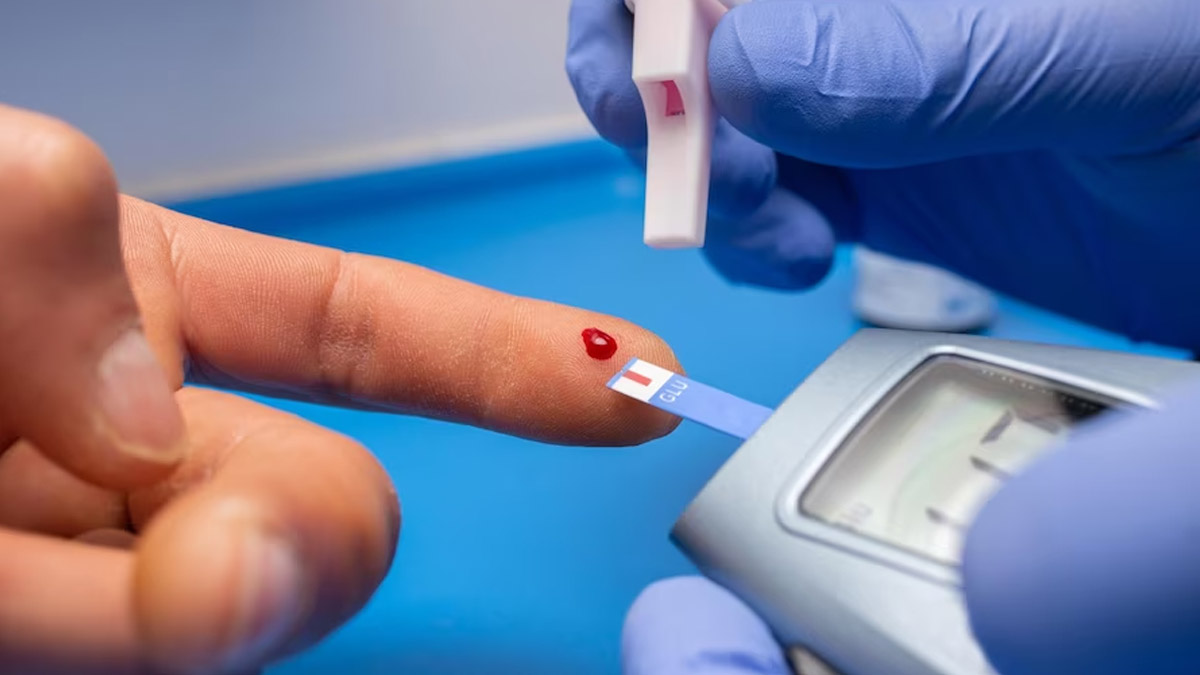
Have you ever noticed changes in your skin that made you wonder if something more significant was going on beneath the surface? Perhaps it's an inexplicable itchiness or a rash that won't seem to fade away. This may indicate an underlying health issue, such as diabetes. Paying attention to the warning signs your skin displays can be crucial for early detection and intervention.
Dr Seema Oberoi Lall, Consultant, Dermatology, CK Birla Hospital, Gurugram, listed the signs of diabetes that may appear on the skin.

Diabetes is a condition characterised by the body's inability to properly utilise blood sugar due to a lack of or decrease in insulin levels, resulting in high blood sugar levels. Often, diabetes may not exhibit noticeable symptoms, especially in the early stages when individuals are unaware of their condition. However, the symptoms may manifest in various organs, with the skin being one of the most common areas affected.
The World Health Organization (WHO) estimates that 77 million adults in India over 18 have type 2 diabetes and that almost 25 million are pre-diabetics (with an increased risk of developing the disease shortly).
Signs Of Diabetes That Appear On Skin

Skin Infections
Dr Lall said that the most prevalent symptoms related to diabetes are skin infections, particularly unexplained recurrent infections. These infections may include conditions like recurrent folliculitis and recurrent furunculosis (commonly known as ‘baltod’), which are infections occurring in the hair follicles, or the development of boils in different areas of the body.
She further said, “While anyone can experience the occasional boil, frequent and severe occurrences that require antibiotics or take an extended time to heal may indicate the need for a diabetes test. In many cases, individuals may have borderline diabetes (pre-diabetic status) or full-blown diabetes.”
Sometimes, it may not be multiple or recurrent boils or infections but rather a single boil that becomes severe enough to require drainage. This scenario is particularly important in younger age groups, as routine checkups and diabetes diagnoses are more common as we grow older.
However, younger individuals who are otherwise healthy may experience severe and persistent infections, serving as a significant clue for the timely detection and management of diabetes. Timely control of blood sugar levels can lead to a healthier life in the long run.
Also Read: Nerve Damage In Diabetes: Expert Explains The Connection And How To Prevent Diabetic Neuropathy
Fungal Infections

Dr Lall said that bacterial infections, such as boils and fungal infections can also occur in cases of pre-diabetes. These infections may be recurrent, resistant to treatment, and persist despite regular treatment efforts. Recognising these signs of skin infections can serve as warning signs for pre-diabetes.
Itching
Diabetes is frequently the cause of localised itching. A yeast infection, dry skin, or inadequate circulation are some of its potential causes. The lower portions of the legs may itch the most when inadequate circulation is to blame.

Blisters
Another symptom that can be noticed is blisters on your skin. Although blisters can develop on anyone's skin, there is cause for concern if you notice them intermittently and all of a sudden. In diabetics, blisters typically develop on the hands, feet, legs, or forearms and resemble burn marks more than blisters. The main distinction is that these blisters don't hurt.
Also Read: Diabetes Increases Risk Of Cataracts: Expert Explains The Connection
Open Sores
Uncontrolled diabetes can lead to impaired circulation and nerve damage. Your body will eventually have difficulty healing wounds, especially on your feet.
Bottomline
It is crucial not to ignore these warning signs and promptly seek medical attention if you experience any of the aforementioned symptoms. A healthcare professional can evaluate your condition, conduct necessary tests, and provide appropriate guidance and treatment.
Disclaimer
The information in this article is provided by an expert, however, we advise you to consult your expert for a diagnosis based on your body type.







